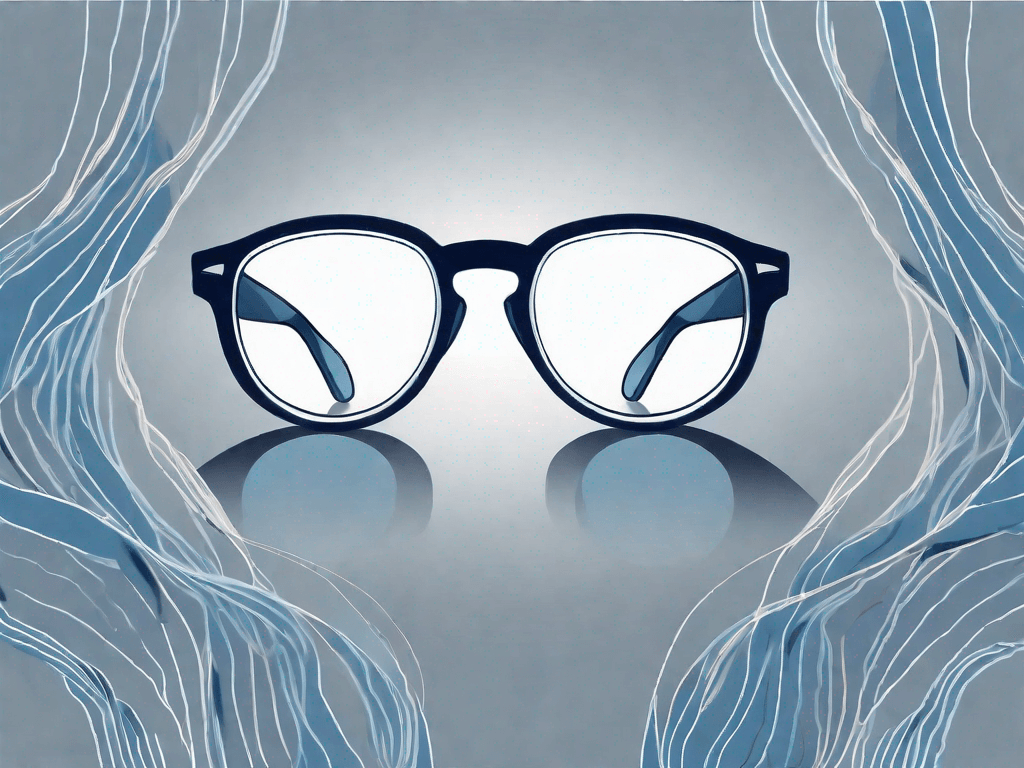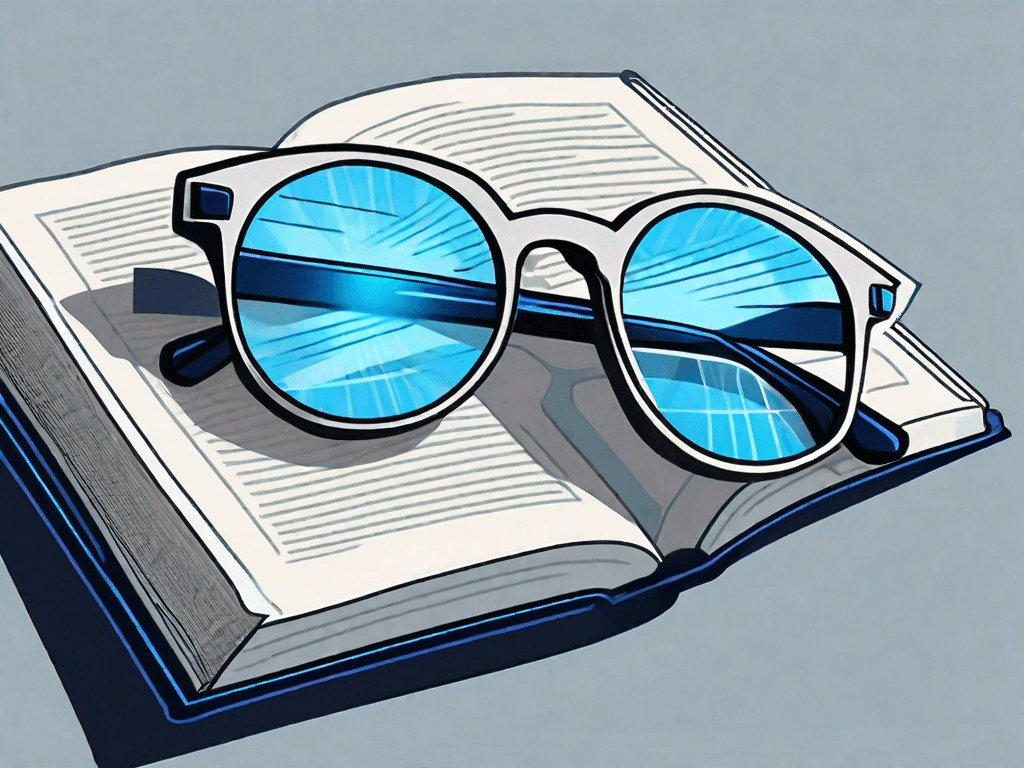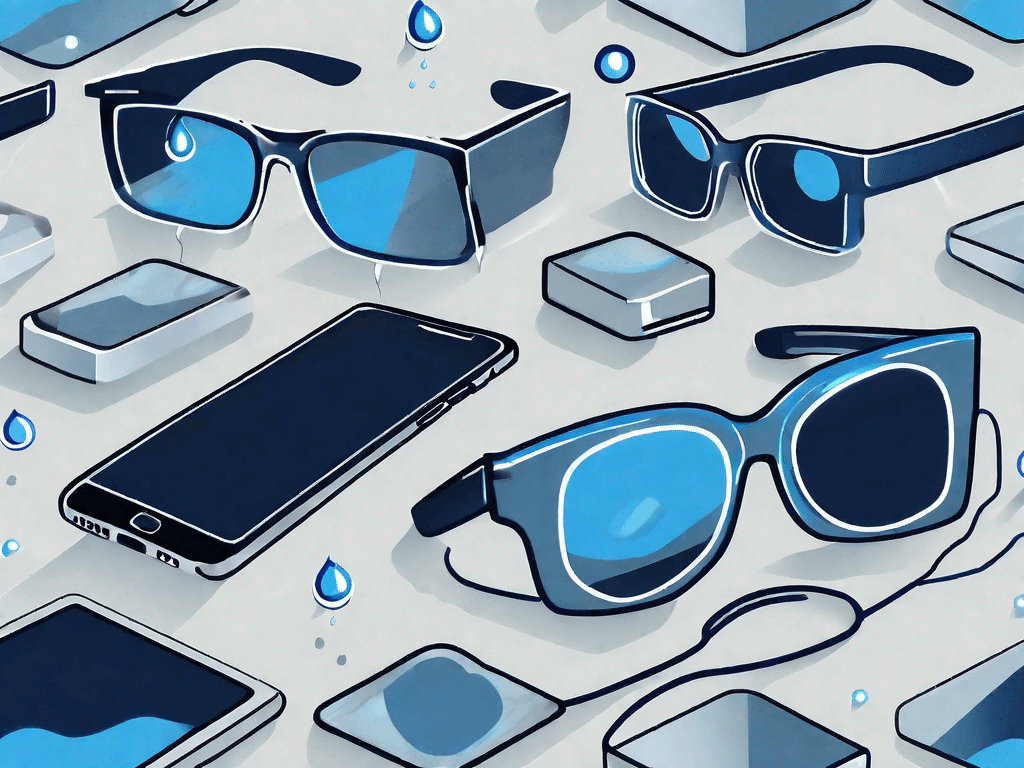How to Tell If Glasses Have a Blue Light Filter
In today's digital age, many of us spend countless hours in front of screens, whether it's for work or leisure. You may have heard about the negative effects of blue light emitted by these screens on our eyes and overall well-being. To protect our eyes from the harmful effects of blue light, many people turn to glasses with blue light filters. But how to tell if glasses have a blue light filter?
In this article, we will explore the world of blue light filters and provide you with everything you need to know to determine if your glasses are equipped with this important feature.
Understanding Blue Light and Its Effects
Before we delve into the specifics of blue light filters, let's first understand what blue light is and how it can impact our eyes and health.
Blue light is a type of high-energy visible light that is emitted by electronic devices, such as smartphones, computers, and televisions. Unlike UV rays, which are known to cause damage to our eyes, blue light can penetrate deeper into the eye, potentially causing long-term harm.
Overexposure to blue light can lead to symptoms such as eye strain, dry eyes, blurred vision, and even sleep disturbances. Studies have also suggested that prolonged exposure to blue light may contribute to the development of age-related macular degeneration, a leading cause of vision loss.
What is Blue Light?
Blue light is a type of visible light with a short wavelength and high energy. It is part of the visible light spectrum, which also includes red, orange, yellow, green, and violet light. However, blue light has a shorter wavelength and higher energy than the other colors in the spectrum.
Natural sources of blue light include sunlight and fluorescent light. Sunlight is the primary source of blue light, and it plays a crucial role in regulating our sleep-wake cycle, mood, and overall well-being. However, the screens of electronic devices, such as smartphones, tablets, and computers, also emit significant amounts of blue light.
When we are exposed to blue light, it enters our eyes and reaches the retina. The retina contains light-sensitive cells called photoreceptors, which convert light into electrical signals that are sent to the brain. Blue light stimulates these photoreceptors, triggering various biological and physiological responses.
The Impact of Blue Light on Your Eyes
Blue light can cause several adverse effects on your eyes. One of the most common effects is digital eye strain, also known as computer vision syndrome. Symptoms of digital eye strain include eye discomfort, dryness, blurred vision, and headaches. These symptoms can occur after prolonged use of electronic devices, especially when the lighting conditions are poor.
Exposure to blue light at night can also disrupt your sleep-wake cycle. This is because blue light suppresses the production of melatonin, a hormone that helps regulate sleep. Melatonin is naturally produced by the body in response to darkness, signaling that it is time to sleep. However, exposure to blue light in the evening or before bedtime can interfere with this process, making it harder to fall asleep and stay asleep. Inadequate sleep can have a negative impact on your overall health and well-being, affecting your mood, cognitive function, and immune system.
Furthermore, some studies have suggested that prolonged exposure to blue light may contribute to the development of age-related macular degeneration. This eye disease affects the central part of the retina, known as the macula, which is responsible for sharp, central vision. Over time, the macula can become damaged, leading to progressive vision loss. While the exact mechanisms behind this association are not fully understood, it is believed that blue light-induced oxidative stress and inflammation play a role in the development and progression of this condition.
It is important to note that not all blue light is harmful. As mentioned earlier, natural sunlight contains blue light, which is essential for our well-being. However, it is the excessive and prolonged exposure to artificial sources of blue light, such as electronic devices, that can pose a risk to our eyes and overall health.
Fortunately, there are measures you can take to protect your eyes from the potential harm of blue light. One effective method is to use blue light filters or screen protectors that can reduce the amount of blue light emitted by electronic devices. These filters work by selectively blocking or absorbing blue light, while still allowing other colors of light to pass through. Additionally, you can also limit your screen time, especially in the evening, and create a sleep-friendly environment by reducing exposure to bright lights before bedtime.
In conclusion, understanding the impact of blue light on our eyes and health is crucial in today's digital age. By taking proactive steps to protect our eyes from excessive blue light exposure, we can help maintain good eye health and overall well-being.
The Importance of Blue Light Filters
Given the potential negative effects of blue light on our eyes, it is important to take measures to protect them. This is where blue light filters come into play.
Blue light filters, also known as blue light blocking or blue light reduction coatings, are special coatings that can be applied to eyeglass lenses. These coatings help to block or reduce the amount of blue light that reaches our eyes, thereby minimizing the potential harm caused by blue light exposure.
By filtering out blue light, these coatings can help alleviate symptoms of digital eye strain, improve sleep quality, and potentially reduce the risk of age-related macular degeneration. They provide an additional layer of protection for our eyes, especially in today's screen-centric world.
The Role of Blue Light Filters
Blue light filters play a crucial role in protecting our eyes from the harmful effects of blue light. With the increasing use of digital devices such as smartphones, tablets, and computers, our eyes are constantly exposed to blue light. This prolonged exposure can lead to a range of issues, including eye strain, dryness, and even long-term damage to the retina.
By applying blue light filters to our eyeglass lenses, we can significantly reduce the amount of blue light that enters our eyes. These filters work by selectively blocking the high-energy blue light while allowing other wavelengths to pass through. This helps to maintain a more balanced and natural light spectrum, reducing the strain on our eyes.
In addition to protecting our eyes from digital devices, blue light filters can also be beneficial for those who work in environments with artificial lighting. Fluorescent lights and LED bulbs emit a significant amount of blue light, which can contribute to eye fatigue and discomfort. By wearing glasses with blue light filters, individuals can minimize the impact of artificial lighting on their eyes, promoting better visual comfort and overall well-being.
Health Benefits of Using Blue Light Filters
Using glasses with blue light filters can offer several health benefits. By reducing our exposure to blue light, these filters can help alleviate symptoms of digital eye strain, such as eye discomfort, dryness, and blurred vision. This can lead to increased comfort and productivity, especially for those who spend long hours in front of screens.
In addition, blue light filters can also improve our sleep quality. By blocking the blue light that suppresses the production of melatonin, a hormone that regulates sleep, these filters can help regulate our sleep-wake cycle. This can result in better sleep patterns and improved overall well-being.
Furthermore, using blue light filters may potentially reduce the risk of age-related macular degeneration. Although more research is needed to establish a definitive link, early studies have suggested that minimizing blue light exposure can help protect the macula, the central part of the retina, from the damage caused by blue light. This could potentially slow down the progression of age-related macular degeneration, a leading cause of vision loss in older adults.
It is important to note that while blue light filters can provide significant benefits, they are not a substitute for good eye care practices. Regular eye exams, proper lighting, and taking breaks from screen time are all important factors in maintaining healthy eyes.
Identifying Blue Light Filter on Your Glasses
Now that we understand the importance and benefits of blue light filters, let's discuss how to identify if your glasses have this feature.
Blue light filters have become increasingly popular due to the growing concern about the harmful effects of blue light exposure from digital screens. These filters are designed to reduce the amount of blue light that reaches your eyes, helping to alleviate eye strain, improve sleep quality, and protect your long-term eye health.
Physical Characteristics of Blue Light Filter Glasses
Glasses with blue light filters generally have a special coating applied to the lenses. This coating can have various physical characteristics that help identify its presence.
One common characteristic of blue light filter glasses is a slight yellow or amber tint on the lenses. This tint can help filter out blue light by absorbing it before it reaches your eyes. However, it is important to note that the tint may vary in intensity, with some glasses having a more pronounced tint than others.
Moreover, the yellow or amber tint not only enhances the filtering properties but also adds a stylish touch to the glasses. It gives them a unique and trendy appearance, making them a popular choice among fashion-conscious individuals.
In addition to the tint, you may also notice a reflection or glare on the lenses when viewing them at certain angles. This is often a result of the blue light filtering coating and can serve as another visual clue to the presence of a blue light filter on your glasses.
Furthermore, the blue light filtering coating on the lenses is not only effective in reducing blue light, but it also helps minimize glare from digital screens. This means that not only will your eyes be protected from harmful blue light, but you will also experience enhanced visual comfort while using electronic devices.
Testing Methods for Blue Light Filters
If you are unsure whether your glasses have a blue light filter, there are a few simple tests you can perform to verify their presence.
One popular method is to use a blue light filter test card or device. These specialized cards or devices emit blue light of a specific wavelength and allow you to observe how your glasses interact with it. If your glasses have a blue light filter, they should block or reduce the amount of blue light transmitted through the card or device.
Another method is to compare the color of your glasses with a standard blue light filter. The standard filter should have a noticeable yellow or amber tint. By comparing the color of your glasses with the standard, you can get an idea of the presence and effectiveness of a blue light filter.
It is worth noting that while these tests can provide some indication of the presence of a blue light filter, they may not be foolproof. Some glasses may have a blue light filter that is not easily detectable through these methods, such as those with a clear or nearly invisible coating.
Ultimately, the best way to ensure that your glasses have a blue light filter is to consult with an optician or eyewear professional. They can provide expert advice and guidance, helping you choose glasses that offer the desired level of blue light protection based on your specific needs and preferences.
Different Types of Blue Light Filter Glasses
There are different types of glasses that feature blue light filters. Let's explore two common types: prescription glasses with blue light filters and non-prescription blue light filter glasses.
Prescription Glasses with Blue Light Filters
If you wear prescription glasses, you can opt for lenses that not only correct your vision but also incorporate a blue light filter. These lenses are customized to your specific prescription needs and provide the added benefit of protecting your eyes from blue light.
Prescription glasses with blue light filters are a great option for individuals who require corrective lenses and spend a significant amount of time in front of screens. They offer the convenience of both vision correction and blue light protection in one pair of glasses.
Non-prescription Blue Light Filter Glasses
For those who don't require prescription glasses, non-prescription blue light filter glasses are readily available. These glasses come with lenses that have a blue light filtering coating, providing protection against blue light without the need for a prescription.
Non-prescription blue light filter glasses are beneficial for individuals who do not require vision correction but still want to protect their eyes from the harmful effects of blue light. They are available in a variety of styles and designs, allowing you to find a pair that suits your personal taste.
Maintaining Your Blue Light Filter Glasses
To ensure optimal performance and longevity of your blue light filter glasses, it is important to take proper care of them.
Cleaning and Care Tips for Blue Light Filter Glasses
To clean your glasses, always use a soft microfiber cloth or lens cleaning tissue. Avoid using paper towels, clothing, or other abrasive materials, as they can scratch the lenses and damage the blue light filter coating.
When removing your glasses, always use both hands to avoid bending or misaligning the frame. It's also a good idea to store your glasses in a protective case when not in use to prevent dust and scratches.
Avoid exposing your glasses to high temperatures or excessive moisture, as these conditions can damage the blue light filter coating. Additionally, avoid using harsh chemicals or cleaning solutions that are not specifically designed for eyeglass lenses.
When to Replace Your Blue Light Filter Glasses
Over time, the effectiveness of the blue light filter coating on your glasses may diminish. It is recommended to replace your blue light filter glasses every 1-2 years or as advised by your eye care professional.
If you notice any visible scratches, cracks, or peeling on the coating, it's time to consider getting a new pair of blue light filter glasses. It's important to maintain the integrity and performance of the blue light filter to continue protecting your eyes effectively.
Frequently Asked Questions About Blue Light Filters
Can You Add Blue Light Filters to Existing Glasses?
If you already have a pair of glasses but would like to add a blue light filter, you may be wondering if it is possible. In most cases, it is not possible to add a blue light filter coating to existing glasses. Blue light filter coatings are typically applied during the manufacturing process and cannot be retroactively added to lenses.
However, if you require prescription lenses, you can discuss the option of adding a blue light filter coating with your eye care professional. They may be able to recommend lenses with built-in blue light filters that can be incorporated into your existing frames.
Are There Side Effects to Using Blue Light Filter Glasses?
Using blue light filter glasses is generally considered safe and does not have any known significant side effects. However, some individuals may experience mild color distortion or a slight yellow tint when wearing glasses with blue light filters.
These potential side effects are usually minimal and do not impact the overall clarity of vision. If you have any concerns about the potential side effects of using blue light filter glasses, it's best to consult with your eye care professional.
In conclusion, protecting our eyes from the harmful effects of blue light is essential in today's digital age. Blue light filter glasses offer a simple and effective solution to minimize the potential harm caused by blue light exposure. By understanding the importance and benefits of blue light filters and knowing how to identify if your glasses have this feature, you can make an informed decision to safeguard your eyes and enhance your visual comfort. So, take a closer look at your glasses today and ensure you have the protection of a blue light filter.





